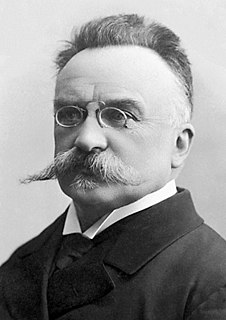A Quote by William Golding
Utopias are presented for our inspection as a critique of the human state. If they are to be treated as anything but trivial exercises of the imagination. I suggest there is a simple test we can apply. We must forget the whole paraphernalia of social description, demonstration, expostulation, approbation, condemnation. We have to say to ourselves, How would I myself live in this proposed society? How long would it be before I went stark staring mad?
Related Quotes
I've always wondered what it would be like if the Messiah, or Christ Returned, were actually alive and living in our society; who would that person be, how we would identify them, how would they live and what would they believe in, how would society react to them? I decided to try and tell my idea of that story.
I would not want to forget the first time I read The Lord of the Rings. I would never want to forget that! That was so magical to me, and that was a real eye-opening experience. I was probably 11 when I read that and already a reader, but I think that book really showed me how you can be transported and how your imagination can take you to a whole other place.
How do we define, how do we describe, how do we explain and/or understand ourselves? What sort of creatures do we take ourselves to be? What are we? Who are we? Why are we? How do we come to be what or who we are or take ourselves to be? How do we give an account of ourselves? How do we account for ourselves, our actions, interactions, transactions (praxis), our biologic processes? Our specific human existence?
Our instructors do not understand how it is. To be bound to someone in such a way. They are too old, too out of touch with their emotions. They no longer remember what it is to live and breathe within the world. They think it simple to pit any two people against each other. It is never simple. The other person becomes how you define your life, how you define yourself. They become as necessary as breathing. Then they expect the victor to continue on without that. It would be like pulling the Murray twins apart and expecting them to be the same. They would be whole but not complete.
No general description of the mode of advance of human knowledge can be just which leaves out of account the social aspect of knowledge. That is of its very essence. What a thing society is! The workingman, with his trade union, knows that. Men and women moving in polite society understand it, still better. But Bohemians, like me, whose work is done in solitude, are apt to forget that not only is a man as a whole little better than a brute in solitude, but also that everything that bears any important meaning to him must receive its interpretation from social considerations.
For a man’s life would become intolerable, if he knew what was going to happen to him. He would be made aware of future evils, and would suffer their agonies in advance, while he would get no joy of present blessings since he would know how they would end. Ignorance is the necessary condition of human happiness, and it has to be admitted that on the whole mankind observes that condition well. We are almost entirely ignorant of ourselves; absolutely of others. In ignorance, we find our bliss; in illusions, our happiness.
In knowledge of human affairs, we should never allow our minds to be enslaved by others by subjecting ourselves to their whims. We must maintain freedom of thought, and never accept anything of purely human authority into our heads. When we are presented with a diversity of opinions, we must choose, if we can; if we cannot, we must remain in doubt.
It is true that I am not one of those who laugh at utopias. The utopia of today can become the reality of tomorrow. Utopias are conceived by optimistic logic which regards constant social and political progress as the ultimate goal of human endeavor; pessimism would plunge a hopeless mankind into a fresh cataclysm.
When you say that [Martin Luther] King was a prophet, you don't say that he predicted anything; you say that he bore witness. He left a committed life so that people would never forget the suffering of people that he was connected to. King was prophetic because he lived a committed life. Now he did critique society, saying you're going to go under if you don't treat your poor right. I mean, that is part of prophetic calling, but it's not predicting anything.





































